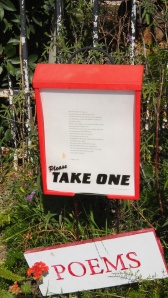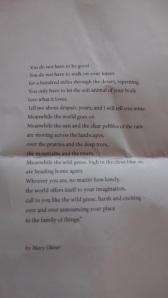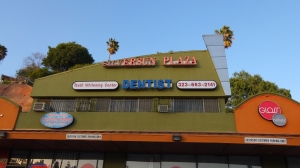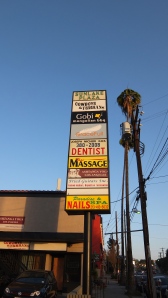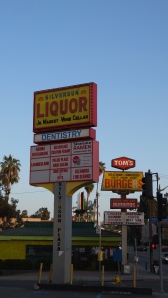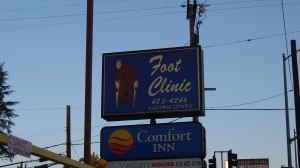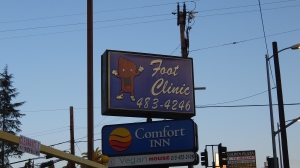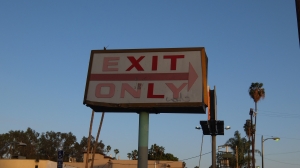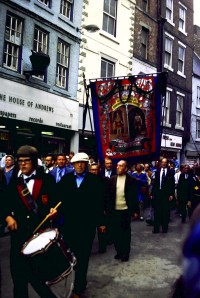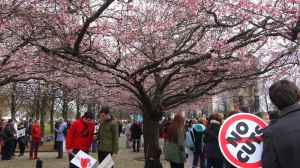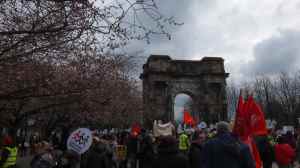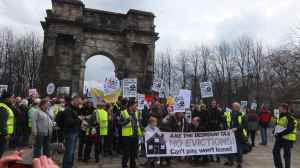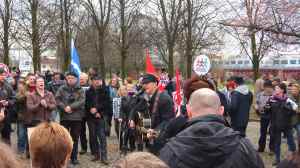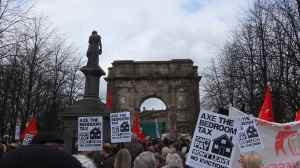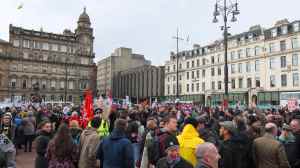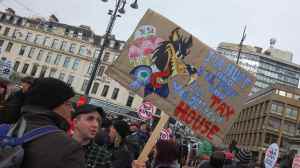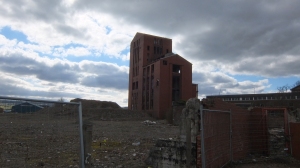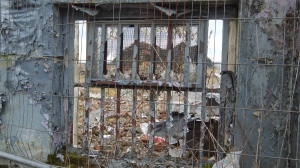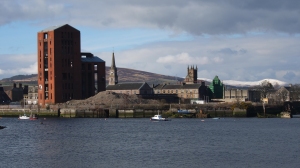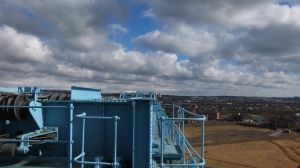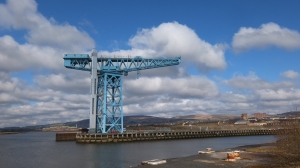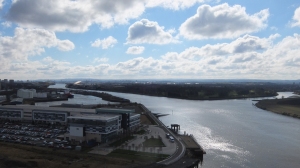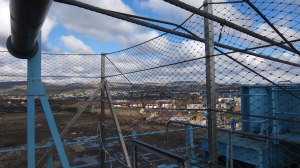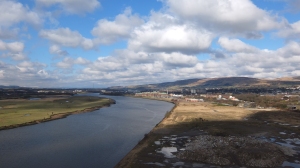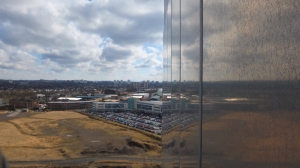The Glasgow Film Festival has dominated the week. I’m missing it already, even though I have 5 films still to go (including the Devil’s Plantation which I am very excited about). Yesterday was Museum Hours. I picked this on the basis that it was about two strangers striking up a friendship in a museum and involved a lot of walking about in Vienna. The plot is simple, a woman from Montreal goes to Vienna because her cousin is in hospital there. One day, wandering round the Kunsthistorisches Museum, she asks a museum gallery attendant for some directions and they start spending time together. But much more than that the film is about ways of seeing (no surprise then that John Berger gets a thank you in the credits). It was quite an extraordinary film.
The film starts with flashes between landscape paintings and real life scenes with similar configurations (bird, snow, the same angles). But the real life scenes are modern and urban and the paintings are from the museum. This sets up the point of the film from the beginning. The discussion of paintings and the remarkable in the everyday, particularly in Breughel’s paintings, is inter-cut with city scenes throughout the film. At one point a flea market scene on a winters day is combined with the voice-over audio gallery guide about the Egyptian book of the dead.
It takes a while to adjust to the slow pacing. At first, I find myself wandering off, remembering two trips to Vienna also made in the winter. A busy street scene reminds me of walking down a shopping street, furious after having an argument with a boyfriend and yet somehow being on a mission to buy him cufflinks for an important talk he was giving that day. And then later dancing round to Strauss waltzes in what I think was the city hall, whatever building it was we learned later had played an important role in the Anschluss and then it felt altogether less romantic. And then a few years ago, another winter trip with Adey and some friends for an Aquarian birthday fest. Cake and comparing guidebooks in coffeehouses, the extreme contrast between the cold formal streets and the underground gay disco which was straight out of the 1970s, Whitney Houston playing in a late night bar as we sang happy birthday to Tom, the Freud Museum and the home video playing there of Freud’s birthday that focuses mainly on the family dog. I’ve seen that video twice now, once in Hampstead once in Vienna.
As the film goes on you realise that the pacing is entirely on purpose. If the film is about looking and lingering then it needs to move slowly, like a flaneur with his lobster on a lead, rather than marching about. There is quite a long section which involves an art historian talking about specific Breughel paintings and some smart-arse visitor takes issue with her interpretation of the paintings, of how extraordinary things happen in everyday settings, Jesus carrying his cross or Paul on the road to Damascus are depicted in the middle of busy scenes and are not the focus of the paintings. She recalls the poem by Auden. She doesn’t read it out, but here it is:
Musee des Beaux Arts
About suffering they were never wrong,
The old Masters: how well they understood
Its human position: how it takes place
While someone else is eating or opening a window or just walking dully along;
How, when the aged are reverently, passionately waiting
For the miraculous birth, there always must be
Children who did not specially want it to happen, skating
On a pond at the edge of the wood:
They never forgot
That even the dreadful martyrdom must run its course
Anyhow in a corner, some untidy spot
Where the dogs go on with their doggy life and the torturer’s horse
Scratches its innocent behind on a tree.
In Breughel’s Icarus, for instance: how everything turns away
Quite leisurely from the disaster; the ploughman may
Have heard the splash, the forsaken cry,
But for him it was not an important failure; the sun shone
As it had to on the white legs disappearing into the green
Water, and the expensive delicate ship that must have seen
Something amazing, a boy falling out of the sky,
Had somewhere to get to and sailed calmly on.
It also reminds me of one my favourite books ‘If Nobody Speaks of Remarkable Things’ by Jon McGregor.
Somewhere in the process of watching the film your eye becomes more trained to detail. I am looking at the face of the art historian like it is a painting. And then coming out onto the Rose Street afterwards I am looking at Glasgow with new eyes.
